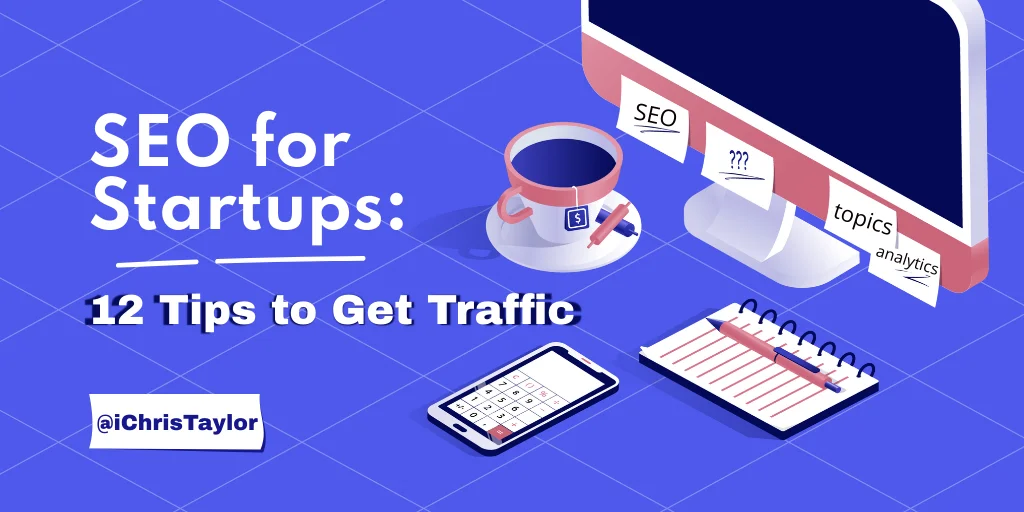If you want to be successful with SEO, you need to treat it like a daily habit. Just like brushing your teeth or taking a shower, you need to do certain tasks every day to make sure your SEO is on track. And just like those other daily tasks, some of these SEO tasks are more important than others. In this blog post, we’re going to take a look at the SEO tasks you should do every day to ensure your website is ranking high in search engines.
What is search engine optimisation?
Search engine optimisation, or SEO, is the process of improving the visibility and ranking of a website or web page in search engine results pages (SERPs). It is a means of increasing the quantity and quality of traffic to a site from search engines, ideally resulting in increased revenue.
SEO may target different kinds of search, including image search, video search, academic search, news search, and industry-specific vertical search engines.
SEO is an ongoing process that should be incorporated into the overall marketing and communications strategy of a business. As the visibility and ranking of a website or web page increase in SERPs, so too does the potential for increased traffic and revenue.
What are the most important ranking factors for SEO?
There are many ranking factors that contribute to successful SEO, but some of the most important include:
Domain name
This is more about brand recognition than keyword stuffing a URL. Google’s John Mueller confirmed that age is not a ranking factor. However, whilst the age of the domain itself isn’t a contributor, an active business that has been for around a long time will be. Also, domain name relevance and an appropriate TLD can indicate relevance to a search query.
For example, if you’re searching for a local service, Google is unlikely to display results from a TLD from a country on the other side of the world.
Page-Level
This is as much about user intent as it is about optimising your content. Your title should be relevant for the search query i.e. it should include your keyword. You should also include your keywords in your meta description and include them (where relevant) in your sub-headings.
Word count is an important factor. Again, this is to do with search intent. GOV.uk has a classic example of a page that ranks No.1 for the search query “VAT rates UK” but only has a handful of words. However, most businesses can’t compete with governments or multi-nationals on domain authority. Therefore they have to create content that ‘ranks’. To do so, they must cover topics in-depth. The average blog post is around 1,400 words, rising to about 2,000 for more comprehensive feature length articles.
If you’re interested, there are other ways you can improve your on-page SEO. For example, learn how to improve the SEO of your website’s copy.
Site-Level
This is making sure your audience can understand what your website is about. If you have a business selling bespoke content strategies, the content of the site must be relevant to anyone who is interested in content marketing or digital marketing. There would be no point writing an article about your favourite travel tips.
The structure of the site, security, trustworthiness, usability, and the quality of the content will all have a bearing on your ranking.
Backlinks
Backlinks are an important part of the SEO process, as they help to improve the site’s PageRank. Backlinks are created when one website links to another. The value of a backlink is based on the quality of the linking site, as well as the relevance of the link to the target site. A backlink from a high-quality, relevant site is worth more than a backlink from a low-quality or irrelevant site.
Essentially, the more backlinks you have, the more important your website might be. I always view backlinks through the lens of relevance and context. For example, for a small business website, backlinks will not be that important.
User Actions
When someone enters a search term on Google, what is their next step?
They will read the results and maybe pick one and click through to that website. That simple action is an indicator to Google. Perhaps the meta title and meta description are more relevant to that search query.
You should pay close attention to your website analytics. This can reveal a lot about how users are engaging with your content. Ideally, increasing dwell time can improve your ranking. However, I keep coming back to search intent and relevance. If you create good content, you will be rewarded with high quality traffic.
The Google Algorithm
This is ever changing and it pays to keep up to date. Search results can be personalised i.e. customised for your search habits and favour your preferred websites. Depending on the search term, search results can be localised. It’s safe to say, there’s a lot going on behind the scenes.
Keyword research is probably more important than ever. Find out how you can get started with keyword research.
Brand Name Signals
Internal links are another important factor. Using the correct anchor text can indicate brand relevance. One of the easiest ways to boost your brand signals is to make sure all of your social media accounts link back to your website. Active social media accounts will also provide an indication to both users and search engines that the brand is alive.
Related: An actionable strategy for local SEO: How to Rank #1 for Local Searches
What are the SEO tasks you should be doing everyday?
There are a number of daily SEO tasks that can help you improve your website’s ranking in search engine results pages (SERPs).
What should you be monitoring?
Analytics: how is your content performing? Is it meeting your goals and objectives?
Google Search Console (GSC): is your content ranking? Are your search impressions growing? What is the CTR? You can also use GSC to generate keyword ideas.
Technical errors: GSC will also notify you of crawl errors or usability errors. You’ll want to keep on top of these as they can harm your ranking. It’s also useful to conduct a broken links audit every month.
Speed: With fast broadband, it is easy to become complacent when it comes to website speed. However, users want a fast experience. This means your content should load quickly and without fuss. For example, you can check to make sure any new content has properly sized images. But most importantly, you will want to make sure your website is working! You never know when your web host or server might have a wobble. You could use a tool like Pingdom to monitor your uptime and let you know if your website is down.
Content
As you build out your content, it is important to optimise existing content. This could be as simple as adding or removing internal links, updating anchor text or sharing the content via social media.
One of the things you might spot during your daily tasks is, content that needs a refresh. For example, any content that includes a date e.g. best laptops for students 2019. That’s an example of an article that should be updated for today’s prospective students.
Learn more: How to optimise the structure of your blog posts for search engines.
Keyword rankings
There’s no point investing in content if you aren’t continuing to reap the rewards. This means you monitor the performance of your existing content to make sure it is still driving traffic and meeting your goals. When it starts to slip (and it will) you need to address the issues fast. Checking these daily will give you an early warning to make improvements.
Meta data
Google has stated that they may manipulate the text they show in SERPs. This means, they may not display your meta title or meta description. However, it is still best practice to make sure you try and make your meta titles and meta description as helpful and meaningful as possible.
In other words, it’s still OK to test new versions of these out. If you find your CTR is falling, you should definitely change the meta title and description.
Research
Not all daily SEO tasks will be reactive. Research should be high on the list of things you do today. Being proactive and finding opportunities can really help improve a website’s ranking. This isn’t just keyword research either. You could be researching your target audience or your competitors. Maybe there are new government regulations for your industry. Ultimately, SEO is about creating quality content and that requires research.
Reporting
You shouldn’t be required to report on a daily basis. However, you might want a daily report. This could indicate certain trends. What is the daily conversion rate? What is your CTR? What is the average dwell time? There are lots of things you can monitor and report on. Choosing which ones are right for you will depend on the objectives of your business.
How can you increase the amount of organic traffic to your website?
There’s really only one way to increase the amount of organic visitors to your site, and that’s to consistently create high quality content that satisfies your audience needs. This content needs to be relevant to your target audience and offer them value.
The best way to do this is by creating great content that solves problems and answers questions. This means making sure that when someone searches for your product or service, they find you instead of your competitors.
Of course, you still need to make sure your site is ‘optimised’. This includes making sure that you have a great title tag, meta description tags, alt text, etc. Also, you want to make sure that your web pages load quickly. People hate slow websites. But most importantly, the content should be well-written and engaging, so that people will want to share it.
What is an SEO strategy and why do you need one?
An SEO strategy is a plan for how you want to rank in the organic results of Google. It’s a way of thinking about how to structure your website and its pages to make sure that when someone searches for a topic related to your business, your site appears near the top of the list.
Related: 3 SEO strategies every business should be using.
An SEO strategy isn’t just about making sure that your site ranks well; it also involves creating compelling content that helps visitors find exactly what they’re looking for. This means writing articles that answer questions and provide useful information, while avoiding spammy tactics such as keyword stuffing.
The best SEO strategies focus on long-term goals rather than short-term wins. Instead of trying to beat out competitors, you’ll aim to attract more traffic to your site and keep them there longer. SEO strategies are tailored to the individual business and take into account the unique content and structure of the site.
A good SEO strategy will consider the technical aspects of the site, the quality and quantity of the site’s content, and the off-site factors that can affect the site’s ranking. An effective SEO strategy can be the difference between a successful website and one that fails to attract visitors.
You may even consider hiring an agency to help you create an effective SEO strategy. These experts can analyse your current efforts and suggest ways to improve your rankings.
What’s the most effective way to find SEO keywords for your niche?
There are a few effective ways to find SEO keywords for your niche. One way is to use keyword research tools like Google AdWords Keyword Planner and WriterZen. This method is great when you have time on your hands because you can spend hours researching each keyword. These tools give you a list of suggested keywords based on your needs. If you are having trouble choosing which keywords to include in your website, this is a great place to start.
Keywords are very important because they help determine how well your page ranks in search results. When someone searches for a particular term, the search engine looks for pages that contain those terms. Once it finds a match, it displays the results in order of relevance.
Another way is to look at your competitor’s websites and see what keywords they are targeting. You can also use Google Search Console to see what keywords your website is already ranking for.
Finally, you can use social media platforms like Twitter and Facebook to see what keywords people are talking about in your niche.
Learn more about SEO keyword research.
How do you write SEO content?
Or should the question be: how do you write content that my audience wants and needs?
The best way to figure out what your audience wants and needs is to ask them. You may find that they already have an answer for you.
But even better would be to make sure that you’re asking the right questions. That means finding out what problems your prospect faces and then creating a product that solves those problems.
This is where you’ll really learn what your customers want because they’ll show you. You can learn this through keyword research.
In fact, the more you research your customers the more you’ll learn. And the more you learn, the more you’ll be able to anticipate their needs and desires.
Once you know what they want, you can begin writing content that speaks directly to their needs.
SEO writing is an art form. It’s not about writing for the sake of writing. It’s about creating content that speaks directly to your audience and helps them solve problems.
The key to success is knowing your audience inside out. This means understanding their pains, desires, fears, hopes, dreams, motivations, values, challenges, frustrations, aspirations, and any other aspect of their lives.
This is why content marketing is such a powerful tool. It allows you to speak directly to your audience and give them exactly what they want.
Find out how to craft a successful SEO-optimized content strategy.




